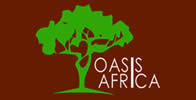What is sexual addiction?
Currently, being treated as a vital and widely spread disorder, sexual addiction is characterized by persistent as well as intense sexual thoughts, urges and acts that negative impact on individuals lives (Ghasem & Hashemi, 2019). As such, it is an enormously complex problem that requires a multidisciplinary approach from various facets of mental health practitioners including psychiatrists, clinical psychologists, counseling psychologists, social workers, pastoral counselors, as well as law enforcement personnel. Individuals with the problem of sexual addiction often try to employ efforts to either control or delay sexual feelings and acts without success (Cooper, Houchins, & Kraus, 2018). Like other mental health conditions, sexual addiction are categorized to be more prevalent among people with infectious diseases such as HIV/AIDS, sexual offenders, mood disorders, anxiety, substance use disorders and pathological gambling (Kraus, Voon, & Potenza, 2016).
Causes of sexual addiction
Personality Traits
Sexual addiction is associated with certain personality characteristics such as neuroticism. Neuroticism is a primary personality factor marked by a lowered ability to regulate emotions, lower frustration tolerance, and maladaptive coping strategies. Higher ratings of Neuroticism are associated with heightened levels of depression, hostility, impulsivity and vulnerability to stress (Pinto, Carvalho, & Nobre, 2013). In relation to trauma, individuals with heightened levels of neuroticism and negative mood may engage in sexual addiction as a compensatory strategy to shift away from negative emotionality (Dhuffar et al. 2015). Further, Dhuffar et al (2015) opined that other personality factors have been observed in individuals with symptoms of sexual addiction such as deficits in affect regulation skills and increased negative affect, including alexithymia (difficulty identifying emotion), depression, and vulnerability to stress.
Self-criticism
Sexual addiction has been linked to self-hostility, which is considered to be an aspect of shame and is typically marked by harsh self-criticism (Reid 2010).
Neurobiological Factors
Some potential neurobiological factors are associated with sexual addiction. For instance, research suggests that potential engagement of dopamine and serotonin pathways in the development and continuation of sexual addiction (Kraus et al. 2016). In relation to brain morphology, individuals with sexual addiction, compared to those without, experience greater activation of the dorsal anterior cingulate, corlex ventral striatum, and amygdala when exposed to sexually explicit cues (Voon, et al., 2014).
Treating sexual addiction
Psychopharmacological Interventions
There is limited information on how the problem of sexual addiction can be addressed. However, according to Rosenberg, Carnes and O’Connor (2014) psychopharmacological interventions are often utilized so as to address dysfunctional sexual behaviors, manage cravings, and reduce compulsivity.
Seek Professional Help
The best a sex addict can do is going for therapy since it will help reveal triggers and the underlying causes. Besides, therapy helps with managing your addiction, being hopeful that you are not alone, you have a support system.
Understand Your Triggers
It is significant for individuals to be aware that they have a problem with sex addiction as it aids in understanding the triggers. Everyone has different triggers that can cause them to give in to their toxic habits. For instance, for a sex addict, triggers might be using specific apps on your phone or using the internet at all. Maybe certain movies or scenes in movies trigger your thoughts. Visual stimulation is often the main culprit that can trigger a sex addict to act on their addiction.
Confide in Someone
It is difficult to openly speak about sex addiction. The beauty of it is that one can confide in someone they trust as a way of decreasing the burden. It also helps with motivation knowing that the triggers are manageable.
Journaling
Journaling not only aids in identifying the triggers, but enable you to understand how to handle them. It is important to write the triggers down. In case you felt overwhelmed and gave in to your addiction, write about it and how it happened, how you responded and whether you tried fighting the urges.
References
Cooper, I., Houchins, J. R., & Kraus, S. W. (2018). Personality and Sexual Addiction. Springer International Publishing, 14-21.
Ghasem, S., & Hashemi, S. (2019). Sexual addiction and its comorbidity with drug addiction. Social health and Addiction, 6(21), 77-96.
Kraus, S. W., Voon, V., & Potenza, M. N. (2016). Should compulsive sexual behavior be considered an addiction? . Addiction, 2097-2106.
Pinto, J., Carvalho, J., & Nobre, P. J. (2013). The relationship between the FFM personality traits, state psychopathology, and sexual compulsivity in a sample of male college students. The Journal og Sexual Medicine, 1773-1782.
Rosenberg, K. P., Carnes, P., & O’Connor, S. (2014). Evaluation and treatment of sex addiction. Journal of Sex & Marital Therapy, 77-91.
Voon, V., Mole, T. B., Porter, L., Morris, L., Mitchell, S., & Irvine, M. (2014). Neural correlates of sexual cue reactivity in inidviduals with and without compulsive sexual behaviors. PLOS One, 9.
Written by:Moureen Adhiambo Nyayieka,
M.A Counseling Psychology-University of Nairobi;
PhD Clinical Psychology Student, Daystar University
Edited by: Nyagithi Waweru.
Tel: (+254) 0725366614 or
E-mail: ad***@oa*********.ke

